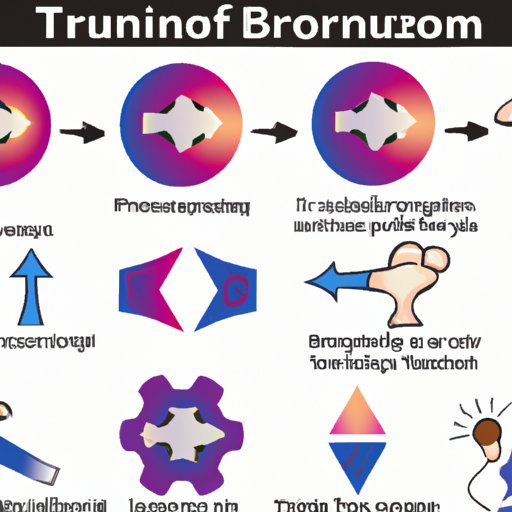
I. Introduction
Have you ever heard the rumor that we only use 10% of our brain? This enduring myth has been a staple of popular culture for years, leading many to wonder about the potential of the human brain. In this article, we’ll explore the truth behind this myth and delve into the many incredible capabilities of the human brain.
II. Debunking the Common Myth
It’s a pervasive idea that we only use a fraction of our brain’s true potential. But where did this idea come from, and what is the real percentage of brain usage? The truth is, this idea is a complete myth. Neurological research has shown that we use virtually all of our brain, all the time. Every part of our brain serves a specific and meaningful purpose, and our brain’s capacity is quite amazing.
III. Different Activities and Brain Functions
Our brain works together to support the many tasks we engage in on a daily basis. Different activities require different levels of brain functionality, and different parts of the brain are activated depending on the task at hand. For example, solving a math problem engages a different part of the brain than reading a novel, and playing a musical instrument engages yet another part of the brain. By understanding how the brain works in different situations, we can better appreciate its true potential and unlock new ways to optimize cognition.
IV. Benefits of Using Different Areas of the Brain
Activating different parts of the brain can help improve overall brain function and improve cognitive function in specific domains. For example, meditation has been shown to improve focus and attention, while learning new skills can promote brain plasticity and help keep the mind sharp. Physical exercise has also been shown to be beneficial for brain function, especially when it comes to spatial reasoning and memory. Research studies support the notion that using different areas of the brain leads to overall cognitive improvement and can help slow the natural decline in brain function that comes with aging.
V. Neurological Research Behind Brain Functioning
The complexity of the brain is truly awe-inspiring, and it’s only in recent years that we’ve begun to scratch the surface of our understanding of the brain’s functioning. Advances in neuroimaging technologies, such as fMRI and PET scans, have allowed us to glimpse the inner workings of the brain in unprecedented detail. Researchers are constantly uncovering new insights into the various brain processes that support our thoughts and actions, offering new opportunities to develop treatments and therapies for a range of neurological disorders.
VI. Brain Training Exercises and Cognitive Functioning
With the rise of digital media, a host of online resources and apps have sprung up to help people train their brains and improve cognitive function. While some of these resources claim fantastic results, it’s important to be discerning about which ones actually deliver. Exercising your brain is a worthwhile task, but it’s important to approach these exercises with a critical eye and make sure you’re committing your time and effort to those that have been scientifically proven to work.
VII. Philosophical Tone
The brain and consciousness remain one of the most fascinating areas of research in science and philosophy, raising profound questions about the nature of the mind and the limits of free will. From debates around the “hard problem of consciousness” to a growing fascination with the concept of the self, the brain and mind continue to challenge our deepest preconceptions about ourselves and the universe around us. Understanding more about the potential of the brain can offer us new insights and possibilities into what it means to be human.
VIII. Conclusion
In conclusion, the human brain is a complex and multifaceted organ that operates at an extraordinary level of capacity. While we don’t use just 10% of our brain, there are ways we can optimize our cognitive potential and gain better insights into how our brain functions. By exercising different parts of our brain and staying curious about the latest research, we can continue to push the boundaries of what we’re capable of and better understand the nature of our consciousness and self.
Are you interested in exploring more about the potential of your brain? Consider learning a new skill, meditating, or engaging in physical exercise. The possibilities are endless, and the brain is waiting for you to unlock its full potential.





